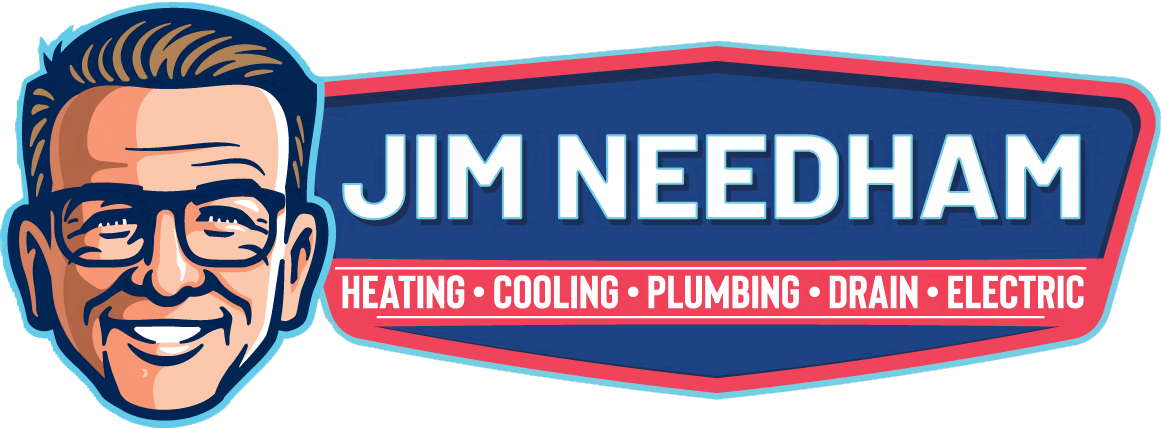In Colorado, wildfire season has traditionally run from April to July. In 2024, the Colorado Division of Fire Prevention and Control (DFPC) warned that wildfires could be a year-long concern. The top health risk for households with wildfires is air quality. Homes can be many miles from the fire and still experience exposure to smoke and ash. Air pollution can get into your home and negatively affect your health both in the short and long term. Since you don’t want to open windows while there’s smoke in the air, your HVAC system plays an integral role. Let’s explore how you can upgrade it for even better indoor air quality.
High-Quality HVAC Filter
All HVAC systems have at least one air filter, which protects the system and the air you breathe. To improve your air quality, you should choose a high-quality filter from a trusted brand and pay attention to its minimum efficiency reporting value (MERV) rating. The MERV rating is a filter efficiency scale that ranges from 1 to 16. You should choose a high MERV rating that your system will support. Most modern HVAC systems support MERV 13. A MERV 13 filter will trap smoke, ash and most household allergens. If you’re unsure of the MERV rating that your system supports, one of our HVAC technicians can help.
If you have a central HVAC system, you’ll find your filter either at the supply vent or inside the furnace. You should check the filter every week when there’s smoke in your area. Swap the old filter out with a new one as needed.
In ductless systems, the filters are inside the indoor units. You should check them weekly and wash them at least every two weeks. Make sure to replace them every year. The end of July is a great time to do this, as the heaviest wildfire period is over.
Modern Air Conditioner or Heat Pump
Experts advise against window air conditioners during wildfires. If you must use one, close the outdoor air damper. Consider upgrading the system to either a ductless or ducted air conditioner or heat pump. You should upgrade if you have an older system as well. Modern HVAC systems are more efficient, which means they don’t have to run as often and provide better air quality.
Seasonal HVAC Maintenance
You should schedule an HVAC tune-up twice a year. Schedule your cooling tune-up in early spring ahead of the peak wildfire season. Then, book your heating tune-up in early fall. During this appointment, our technician will perform a multi-point inspection. We’ll lubricate all moving parts and test and tighten electrical components and connections. Our technician will also clean the equipment. This is important for components like burners, condenser coils and evaporator coils. It will optimize the system’s efficiency and improve your indoor air quality. This is also an excellent time to discuss some of the other HVAC upgrades we’ll mention in the sections ahead.
Smart Thermostat
If you don’t yet have one, this is an excellent time to invest in a smart thermostat. It will save you money over the long term through scheduling. Some of the smart thermostats we offer can also help with indoor air quality. Some have integrated air quality monitors and can alert you when the particulate concentration in your air is unsafe. Smart thermostats can remind you to check the filter. Some support remote sensors allow you to have multiple sensors throughout the home. There are sensors not only for temperature but also relative humidity (RH), air quality, carbon monoxide (CO) and so forth.
Whole-House Humidity Control
When affected by wildfires, you want to seal your home as tight as possible to keep the smoke and ash out. Whole-house humidity control helps on a couple of fronts. It’ll let you be comfortable at a higher or lower temperature, so you won’t have to run your HVAC system as often. High humidity can also increase the concentration of some indoor air pollutants and decrease air circulation. The Environmental Protection Agency (EPA) recommends an RH between 30% and 50%. Many households will need a humidifier in winter and a dehumidifier in summer.
Air Duct Repair and Sealing
It’s also imperative that your ducts are in good condition. The Department of Energy (DOE) estimates the average home loses 20% of its heating and cooling through air leakage, which can be as high as 40%. That is a significant loss of money, but there are even bigger concerns during wildfires. The air leaking out gets replaced by air from within your attic or crawl space. During a wildfire, that air likely has pollution in it, including smoke and ash that will affect your health.
We recommend having your ducts inspected annually. Duct inspections are not part of a seasonal tune-up, but you can schedule them at the same time. Additionally, having repairs performed is an option we offer that includes replacing mounting hardware and entire sections that may be compromised. If you have air leakage due to worn seals and cracks in the duct walls, we can seal the ducts. We use the aerosol sealing technique, which is the EPA-recommended method. It can reduce your air losses to less than 5%.
Other Considerations
Particulate matter can build up in your ducts over time. This includes dust but also ash and other debris from wildfires. The average household needs their ducts cleaned every several years. If it’s been a bad year for wildfires, clean your ducts after July.
If your HVAC system has a recirculation system, use it. This will recirculate the air in the home even when the AC or heat isn’t running. It will also limit the amount of air from outside the home. Also, choose a smart thermostat that supports your recirculation settings. If you have a whole-house fan, you should avoid using it and cover the fresh air intake during periods of heightened exposure.
To improve your air quality, consider getting an air purification system. Portable air purifiers are the most affordable option, while in-duct air purification systems are the most effective. Many experts recommend an air purifier that has a high-efficiency particulate air (HEPA) filter and activated carbon. The HEPA filter provides better particulate filtration than an HVAC filter can. It will remove 99.97% or more of all particles in the air, and the activated carbon will remove unpleasant odors from the home. It will also absorb many of the gases and chemicals found in the air during a wildfire.
Do You Need Help Preparing Your HVAC System for Wildfire Season?
Jim Needham Heating Cooling Plumbing and Drain has over 30 years of experience. We have locations in Littleton and Thornton and serve homeowners throughout the Greater Denver area. Our NATE-certified HVAC technicians specialize in all ducted and ductless air conditioning systems, including boilers, furnaces, heat pumps and air conditioners. We install smart thermostats and humidifiers and repair and seal ductwork. Additionally, we have plumbers who can perform camera inspections, clean drains, fix leaks, pipe and re-pipe water, sewer and gas lines. Our plumbers also install fixtures, tank and tankless water heaters, water softening systems and sump pumps. Call Jim Needham Heating Cooling Plumbing and Drain today to book an appointment.

